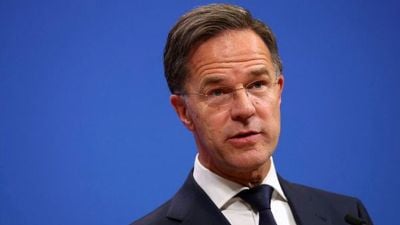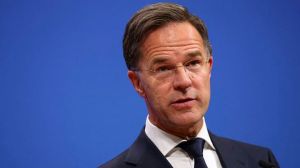Indo-Pak talks take off, thorny issues may prove acid test
ISLAMABAD, June 20: The first day of discussions in the ongoing talks between the foreign secretaries of India and Pakistan in Islamabad we...

ISLAMABAD, June 20: The first day of discussions in the ongoing talks between the foreign secretaries of India and Pakistan in Islamabad were devoted to identifying issues that will come up for discussion in the next few days of deliberations.
The first day’s work has been described as “thorough and result-oriented” by Pakistan foreign office spokesman Khalid Saleem. “We were not talking in the air,” he said, adding he was hopeful that a mechanism would be devised in the Islamabad parleys for future talks as well.
Saleem said the two sides met in a cordial and constructive atmosphere on Friday. Two sessions were held. The first was a formal session attended by a full delegation in which the two sides stated their respective positions on the outstanding issues between the two countries while the second session, a restricted informal one, was devoted to devising a mechanism to address the outstanding issues in a “purposeful manner”.
Saleem brushed aside questions relating to Kashmir and other issues by saying that this was “jumping the gun” since a mechanism was still being devised to address them through working groups. “When they are identified, you will be informed,” he said.
Indian Foreign Secretary Salman Haider told the press briefing that it was premature to identify any issues that would come up for discussions. But Pakistan Foreign Secretary Shamshad Ahmad later commented: “Lets hope all is well.”
But the mood in Islamabad has been described by analysts as very different from that at the previous meeting in Delhi.
They said that a lot has happened since the two secretaries met in March and the situation has changed a lot with a lot of the goodwill between the leaders evaporating. Prime Minister Nawaz Sharif is under pressure from various quarters over his attempts at normalising relations and opening up trade with India. While smuggling between the countries is estimated at over $ 1 billion annually, Pakistani industrialists resist opening up trade on the pretext that they would be over swamped by cheap Indian products.
“It will sound the death knell for Pakistan’s cottage industry,” says one observer.
But trade will not be the only thing on the mind of the Pakistanis. For them, Kashmir is the “core issue”, and the government cannot appear to be selling out on Kashmir. Hawks within Pakistan’s establishment warn that India is wooing Pakistan over by offering cheap products, but if Pakistan normalises trade ties, the issue of Kashmir will be side-lined. “If Pakistan opens up trade with India without solving the Kashmir problem, it will give a very wrong signal to the Kashmiris,” says Muhammad Zubair, a former cabinet minister.
When the prime ministers of India and Pakistan met at Male in May, the talks were held amidst the goodwill generated by the initial rounds of foreign secretary-level talks in Delhi where little was achieved except the fact that the Indians and Pakistanis were sitting down and talking to each other after a gap of three years. “This itself is an achievement,” says Saleem.
This time round, Pakistan has set the mood of the talks by protesting to the United Nations and the United States last week over the deployment of Prithvi missiles near the Indo-Pakistan border at Jalandhar.
Pakistan is also sore over the death of an army officer in cross border firing and also accuses the Indian Air Force of allowing one of its fighter aircraft to overflying into Pakistani airspace.
“These were childish actions aimed at intimidating the Pakistanis,” says Foreign Minister Gohar Ayub.





- 01
- 02
- 03
- 04
- 05


























